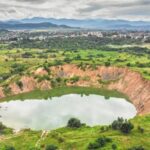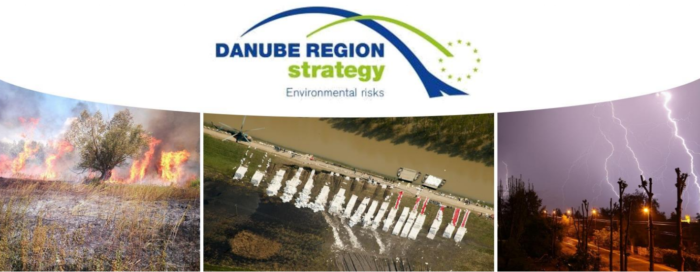The Virtual Side Event of Water-related Disaster Risk Reduction (DRR) under the COVID-19 Pandemic, Integrating Actions towards Full Achievement of SDGs, attached to the High Level Political Forum 2020 was organized by the Government of Japan with Co-Organizers: Permanent Missions of Finland, Hungary and Tajikistan, UNDRR, UNU, UNCRD, HELP.
The side-event served as an opportunity for the Member States and other stakeholders to address water-related DRR under the COVID-19 Pandemic and discuss how to take immediate actions to address the co-occurring disasters toward the full achievement of the 2030 Agenda for Sustainable Development. Crisis management of both COVID-19 and water-related disasters should be carried out in an integrated manner at global, country, and local levels, taking into consideration social, environmental, and economic aspects of the twin crises. A river basin, for example, can be an applicable social unit for coping with co-occurring crises and linking risk reduction actions to all SDGs if comprehensive management takes place and cooperation among all relevant stakeholders is promoted in the river basin.
The welcome was a video message from H.E. Mr. AKABA Kazuyoshi, Minister of Land, Infrastructure, Transport and Tourism (MLIT), Japan.
Keynote remarks were given by H.E. Dr. Han Seung-soo, Chair of High Level Experts and Leaders Panel on Water and Disasters (HELP), Former Prime Minister of the Republic of Korea; Ambassador Katalin Annamária Bogyay, Permanent Representative of Hungary to the UN; Mr.Rustam Nazarzoda, Chairman of the Committee for Emergency Situation, Tajikistan; Ms. Mami Mizutori, Special Representative of the UN Secretary-General for Disaster Risk Reduction, Head of the United Nations Office for Disaster Risk Reduction;
Ambassador Katalin Annamária Bogyay raised the attention to the actuality of the topic due to recent flooding in Kyushu, Japan. The importance of providing clean water and reducing disaster risks was always one of the priority development of Hungary as well, by encouraging economical partnerships and launching sustainable projects. The innovative solutions play key role in disaster risk reduction, as providing clean water and sanitation has direct effect in dealing with COVID-19. The Hungarian Government actively took part in the fight against the virus to provide aid but also to contribute to longer term economical growth of developing countries.
The remarks were followed by presentations from Ms Riitta Oksanen, Deputy Director-General, Department for Development Policy, Ministry For Foreign Affairs of Finland; – Principles on Water-related DRR under COVID-19 by Dr, Kenzo Hiroki, Professor, National Graduate Institute for Policy Studies (GRIPS), Japan; Mr. Péter Kovács, Head of River Basin Management and Water Protection Unit, Ministry of Interior and Ms. Kinga Perge, Senior Advisor and Lead Coordinator of the EU Strategy for the Danube Region, Hungary; Mr. HAYAKAWA Jun, Senior Officer for Wide-area Water Management, MLIT, “River Basin Approach to SDGs”; Dr. Gretchen Kalonji, Dean, Institute for Disaster Management and Reconstruction, Sichuan University.
In his presentation, Mr Péter Kovács highlighted the importance of water management and its role in managing COVID-19. Due to COVID-19 pandemic, provision of safe and sufficient water and adequate sanitation and hygiene to all is key to protect human health and save lives. He also talked about the importance of trans-boundary approach in water, but also in flood risk management. His presentation was concluded by pointing out the relevance of climate change in this context, through the connection between droughts and water management.
Ms Kinga Perge talked about the EU Strategy for the Danube Region Environmental Risks Priority Area and its activities related to disaster management. She gave practical examples of preparedness activities, stressing the importance of continuous training of responders during epidemic situations, which can be achieved by distant learning methods. In the framework of PREP-R project, coordinated by SkillDict Adaptive e-learning Solutions and supported by EUSDR PA5, sustainable training programme will be developed, including e-learning modules, such as medical support. Testing the knowledge in real life scenarios also considered as an important activity in the Danube Region, therefore PA5 organized a large scale flood response exercise, where emergency medical teams are involved. It provides opportunity to focus on the possible contagious diseases, which are quite common during flooding. In order to further improve the readiness of the responders, PA5 established a network of experts. The Disaster Management Working Group has the main objective to strengthen the cooperation between disaster management actors in the Danube Region.
Summary and way forward was presented by Professor Taikan Oki, Senior Vice Rector, United Nations University, United Nations Assistant Secretary-General in a video message.
The presentation of Mr Kovacs and Ms Perge can be downloaded here.
The video of the event can be watched here.




